"Near tears, he cleared out at the interlude": how Stanley Kubrick shaked up Arthur C Clarke1/22/2017 The conflict of wills behind 2001: a Space Odyssey advises me that logical instruction, not puzzle, was constantly nearest to my companion's heart. Individuals were habitually astounded to discover that Arthur Clarke and I were great companions. He is viewed as the doyen of idealistic, specialized, Space Age theoretical scholars, trusting our species' salvation to lie totally in logical revelation and building creation, his fiction loaded with definite elucidation, in some cases basically undefined from truth. I am generally depicted as the dissenter of the SF "New Wave", dismissing material science for brain research and supporting social topics over space stories, having a tendency to analyze the drawback of innovation. However really we had comparable standards. Quite a bit of our initial work foreseen propels in astronomy while managing the psychic eventual fate of humanity. Numerous years after our initially meeting I gave a gathering where I acquainted Arthur with William Burroughs, the Beat creator of Naked Lunch. Nobody anticipated that them would have a considerable measure in like manner, however they spent the following couple of hours together, tasting squeezed orange, once in a while requesting the music to be turned down on the grounds that it was ruining their discussion. Conceived two days (and 22 years) separated, we met when I was 15, in the blink of an eye before he went to live for all time in Sri Lanka. He was hilarious, empowering, libertarian and liberal, as inspired by investigating the ocean as inspecting space. We would by and large meet at whatever point he was in England, for the most part at the Globe bar in Hatton Garden, where might be journalists could visit coolly with set up creators, for example, John Wyndham, John Christopher and C S Lewis; the SF society had moved to the Globe from the White Horse in Fetter Lane in the mid-1950s. Arthur had effectively composed his carefree Tales from the White Hart (1957) in tender memory of the Fetter Lane bar. Prior to the war he and some kindred SF scholars had shared a level in Gray's Inn Road. His flatmates as of now called him "Self image" as a result of his aggregate ingestion in the subjects that intrigued him. He happily acknowledged the epithet. Brought up in Somerset, Arthur came to London in the late 1930s to fill in as a benefits examiner for the Board of Education, yet space travel was at that point his main energy. A dynamic individual from the British Interplanetary Society, he grew up perusing all the SF he could discover, a large portion of it in US mash magazines, however H G Wells and Olaf Stapledon (the creator of the epic Last and First Men) remained his central impacts. He contributed as often as possible to the pre-war SF fanzines, co-altering Novae Terrae ("new universes") in its unique shape. One flatmate and kindred manager, William F Temple, depicted him as very hung and given to "sudden, fierce articulations of gaiety". In the wake of taking a shot at radar in the RAF amid the war, Arthur got a top of the line degree in material science and arithmetic from King's College London, and sold a couple of theoretical articles, including one to Wireless World that proposed interchanges satellites in space. His first offers of expert fiction were to Astounding (later Analog), around then the most prestigious American SF magazine, gaining practical experience in theory in light of hard science, with a solid accentuation on space travel. His later work – including his novella Against the Fall of Night, which turned into his first novel, The City and the Stars (1956) – showed up in rather more showy pulps, for example, Startling Stories. His fiction rapidly carried him prevalence with perusers and in under 10 years he got to be distinctly known, with Isaac Asimov and Robert A Heinlein, as one of hard SF's "Huge Three". "Hard SF" is particular from the kind composed by Orwell, Dick or Ballard, which spends significant time in social and mental theory. Arthur's work was recognized from that of his associates by a practically supernatural lyricism and a confidence in a future where humankind would free itself, through science, of its primitive and ruthless qualities. (Not at all like Heinlein, with whom he in the long run dropped out over the American creator's support for Ronald Reagan's "Star Wars" arranges, he had little enthusiasm for military space fiction.) At first his authentic books, for example, The Exploration of Space (1951), were more effective than his fiction. He was soon ready to bolster himself by his written work, turning into a main master on rocketry and space travel, prepared at whatever point the media required a piece about space investigation. He even informed the makers concerning the running story "Dan Dare, Pilot of the Future", which showed up in my most loved comic, the Eagle, and whose pictures prefigured those of 2001: a Space Odyssey. He built up an unmistakable fascination in scuba plunging; it was one of his central purposes behind moving to Sri Lanka in 1956 not long after the breakdown of his first and final marriage, which had endured only a couple of months. He came back to England frequently, continually remaining with his sibling Fred, his sister-in-law Babs and his mom, Nora, in rural London. At times he accompanied a plunging accomplice, Mike Wilson, and carried film of their campaigns with him. He was amazingly pleased with his submerged disclosures, which incorporated the lost Koneswaram sanctuary in Trincomalee, an essential chronicled site. Some time after his entry in Sri Lanka Arthur built up a significant kinship with the jumper Leslie Ekanayake, whose family received him. He committed his 1979 novel, The Fountains of Paradise, to Leslie, depicting him as the "main impeccable companion of a lifetime, in whom were remarkably joined Loyalty, Intelligence and Compassion". In 1977 he endured a repulsive passionate blow when Leslie was killed in a motorbike crash just before his 30th birthday. Arthur kept on living with the Ekanayake family until he kicked the bucket. He was covered by Leslie. The family and his numerous companions in Sri Lanka portray Arthur as a man of honor of awesome liberality and deep sense of being, despite the fact that he was hostile to religious and put humanity's salvation completely in its own particular hands. There is without a doubt a nature of profound optimism in a large portion of Arthur's real work, including 2001 and additionally quite a bit of his verifiable, a component to a great extent lacking from the composition of his sci-fi peers. In many regards he was maybe the most complex SF essayist of his era: his logical preparing consolidated with an exceptionally coherent personality that was enthusiastically dedicated to mankind and the normal world. However his pride in his accomplishments was clear and he kept on gaining his epithet. In the mid-1970s my companion Angus Wilson went to him in Colombo. When he returned home Angus inquired as to whether (like him) Arthur was gay. A sharp SF peruser, he shared a comparable interest in mankind yet had been fairly overpowered by Arthur's "visit" of his home: surrounded supports, pictures brought with presidents and sovereigns, grants in plain view. Arthur struck him as aggressive and "maybe the most egocentric individual I ever met". Did I think Arthur was anxious about the possibility that that he, Angus, was attempting to upstage him somehow? I guaranteed him that Arthur was most likely recently flaunting. Arthur created polio in the 1980s, making travel progressively troublesome. In a matter of seconds before he was expected to be knighted in Colombo by the Prince of Wales in 1998, the Sunday Mirror distributed disturbing and unwarranted chatter about him. I kept in touch with him to give him my ethical support. He expressed gratitude toward me generous. I ought not stress, in any case, he said. The story was simply an endeavor to humiliate his companion Prince Charles. He guaranteed me that another companion, Rupert Murdoch, was taking care of the matter. The story was soon withdrawn with conciliatory sentiments. There are a few distributed records of how the 1968 film 2001: a Space Odyssey appeared. I comprehended from Arthur that he was to some degree baffled by the sporadic timetable of its chief, Stanley Kubrick. Thus, the novel, which they should compose before the film showed up, turned out after the underlying discharge date. In any case, in the primary he appeared to be content with the coordinated effort, even up to the time that harsh cuts were being appeared. He was, I know, anxious that what with Kubrick's failure to settle down and team up on the novel, with the outcome that the book was because of turned out after the true to life discharge, it may resemble a novelisation of the film as opposed to a original work. Construct principally in light of his short story "The Sentinel", together with other distributed actuality and fiction, the film was especially a joint exertion, despite the fact that Arthur was excessively humble about his commitment. As far as concerns him, Kubrick appeared to be not able thought of a consummation that suited him. When I went by the set, the film was at that point around two years behind timetable and well over spending plan. I saw a few option finale scenes built that were later relinquished. In one form, the stone monument ended up being some sort of outsider spaceship. I likewise knew something that I don't think Arthur ever did: Kubrick was sooner or later disappointed with the joint effort, moving toward different authors (counting J G Ballard and myself) to take a shot at the film. He knew neither Ballard nor me by and by. We declined for a few reasons. I felt it is traitorous to acknowledge. I speculated the issue was a distinction in identity. Arthur was a logical teacher. Clarifications were his strong point. He was uncomfortable with most types of equivocalness. Kubrick, then again, was an instinctive executive, slanted to leave translation to the group of onlookers. These distinctions were scarcely recognized. Neither did Kubrick tell Arthur of his worries with respect to the last form. Where, on account of Arthur, the film was overwhelming with voice-over elucidation and illuminations of scenes, Kubrick needed the story to be told totally outwardly. Without counseling or going up against his co-maker, Kubrick cut a colossal measure of Arthur's voice-over clarification amid the last alter. This choice most likely contributed fundamentally to the film's prosperity however Arthur was caught off guard for it. When he tended to MGM officials at a supper in his respect before the debut, he talked warmly of Kubrick, proclaiming that there had been no genuine contradictions between them in every one of the years they had cooperated, however he had yet to see the finished product. My own speculate the time was that Kubrick wasn't quiet with any proposed determination however had nothing better to offer set up of his co-essayist's "Star Child" finishing. We know now that the long last arrangement, offered without clarification, was presumably what transformed the film into the achievement it turned out to be, yet the fairly lethargic looks on the characteristics of the MGM administrators whom Arthur had tended to in his discourse demonstrated that they were in no way, shape or form persuaded they had a victor. What had inspired me on my visit to the set was the devoted excitement of the Nasa counsels, who had workplaces at the studios. You could stroll into a room and discover a completely prepared spacesuit hanging behind the entryway. There were star-graphs and charts on the dividers; detonated drawings, models, taunt ups and pictures of spaceships and hardware. I saw Roy Carnon's artistic creations of Jupiter and extensive portrayals of scenes that would soon turn out to be each filmgoer's concept of what the future in space would resemble. The primary set was ruled by a colossal, completely working axis, worked at boundless cost by Vickers-Armstrongs, the British building firm. Each professional I met discussed the venture with such duty that I was soon contaminated by the conviction that we truly were setting up a campaign to Jupiter. PC created symbolism did not yet exist, thus an awesome arrangement must be constructed or painted near full size. With no enthusiasm for space investigation, I in any case got myself energized by the environment. However I wondered if all the "realness" I saw around me won't not overpower. Could Kubrick's solitary creative energy thrive in this environment? Was that why it was taking so long to finish 2001 and the film was so vigorously over spending plan? I had a somewhat uncomfortable feeling that the impressive interest in building up the truth of interplanetary space travel may deliver a film more narrative than fiction. As it turned out, Arthur did not get the chance to see the finished film until the US private debut. He was stunned by the change. Practically every component of clarification had been evacuated. Reams of voice-over portrayal had been cut. A long way from being a pseudo-narrative, the film was currently subtle, vague and completely vague. Near tears, he exited at the interlude, having viewed a 11-minute arrangement in which a space traveler did only run around the axis in a scene expected to demonstrate the fatigue of space travel. This scene was significantly cut in the form put out on general discharge. On the off chance that Arthur was frustrated by Kubrick's choice to slice his exchange and story deep down, he was in the end accommodated by having the capacity to put everything left out of the film into the novel, implying that every man could deliver his own favored variant. The accomplishment of the film guaranteed that the book turned into a blockbuster, as groups of onlookers looked for answers to questions raised by Kubrick's rendition, and Arthur soon got over his failure, going ahead to compose three top rated continuations of his novel, just a single of which has been recorded in this way. Moving governments to put resources into space investigation and schoolboys to wind up space travelers, 2001 persuaded the overall population that sci-fi could be considered important. Until Star Wars sent the class back to a essentially adolescent frame, the motion picture prompted to a more prominent comprehension of the significant imaginative potential outcomes of a wide range of sci-fi. There would not be a more compelling film until Ridley Scott's Blade Runner, with its calm good resonances. It likewise demonstrated to Hollywood that great, huge spending plan SF motion pictures could be cash spinners and gather basic regard in the meantime. Without 2001 it is improbable the class would have advanced to its present state. I have one other memory of that visit to the 2001 set. Subsequent to being given a voyage through the studio by the MGM marketing expert, I was driven towards Kubrick's office similarly as the chief entered the principle building. I arranged to meet the man who had reached me a year or so prior. I had many inquiries. Maybe he would affirm some of my conjectures. Kubrick's eyes went straight to me and did not abandon me as he talked tersely to the marketing expert. "Get these individuals off the set," he said. We were never up close and personal again.
0 Comments
Leave a Reply. |
|
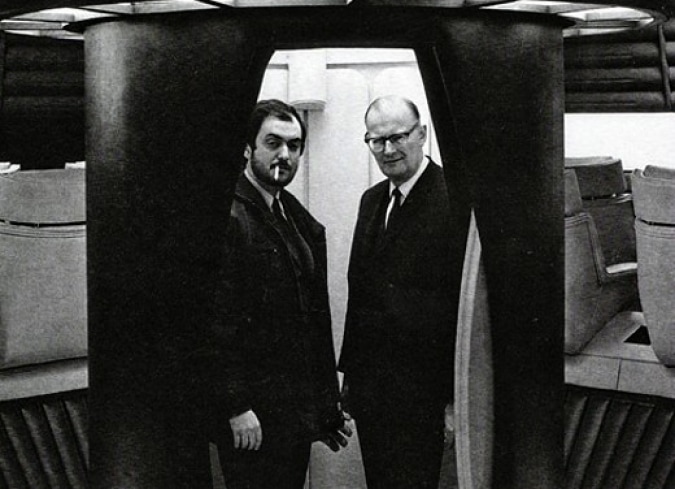
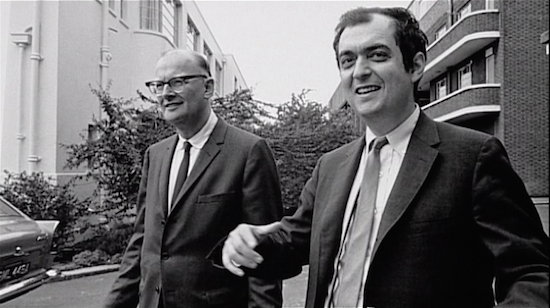
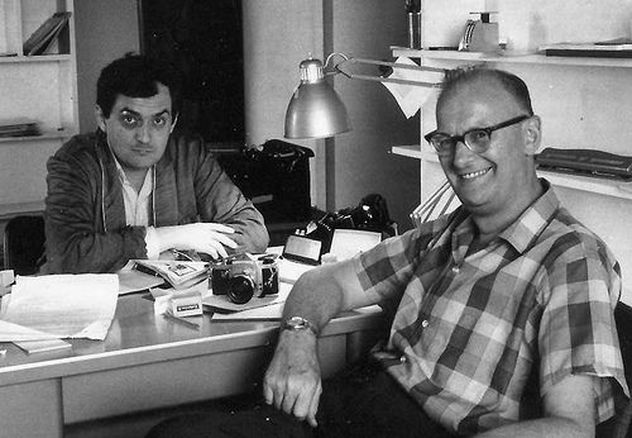
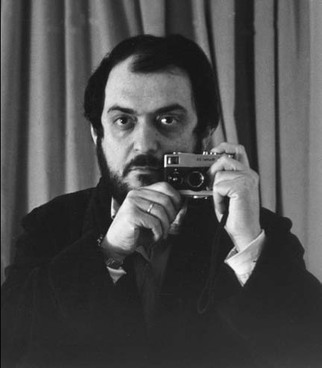
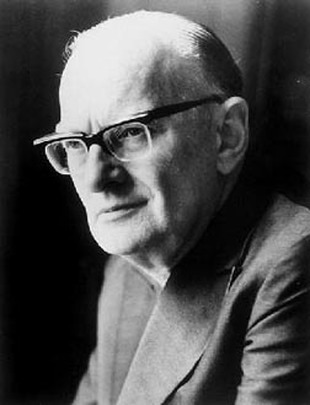
 RSS Feed
RSS Feed
